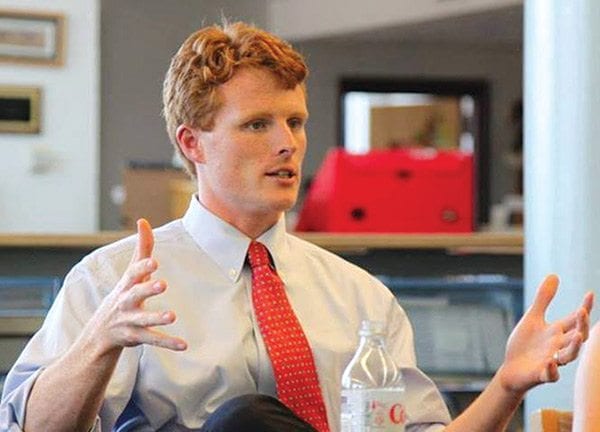
Reporters seem to be obsessed with Rep. Joseph Kennedy’s impending decision about entering the race for U.S. Senate against Ed Markey. Strangely, news reports fail to mention that two strong candidates have already begun their campaigns for the Senate. Steve Pemberton, a business executive originally from New Bedford, has regaled crowds at political events. The other candidate is Shannon Liss-Riordan, an accomplished labor lawyer.
While the Kennedy name generates considerable political support in Massachusetts there are other countervailing factors. People have become impatient with the inability of Congress to improve conditions. A Gallop survey in 2015 found that Americans had a negative attitude toward Congress. The poll found that the more respondents know, the worse they rate Congress, with 66 percent of the highly knowledgeable being negative.
There has been much to intensify the negativity since the Gallop poll was published. The Senate has failed to approve legislation for stricter gun control although a reported 89 percent of Americans approve this action. Also, the wealth gap continues to widen. The bottom half of American households, roughly 62 million, average only $11,000 in net worth, while the top 1 percent possess 40 percent of the nation’s wealth.
The more highly-educated Americans from modest family backgrounds have understandably rebelled against the Congress which to a great extent has been bought out by the affluent. The cost of financing a political campaign has discouraged all but the most assertive. Nonetheless, until now the old rule has persisted that you get in line and await your turn to move up politically.
Alexandria Ocasio-Cortez, now known as AOC, has established the new rules. On June 26, 2018 after she defeated Joseph Crowley in the primary for the House seat in the Bronx and Queens, N.Y. She then won the general election. Her primary opponent was not an ordinary Democratic representative. Crowley, a 10-term incumbent, was also the Democratic Caucus chair. He had been endorsed by N.Y. Gov. Andrew Cuomo, U.S. Senators Chuck Schumer and Kirsten Gillibrand, N.Y. Mayor Bill deBlasio, and every trade union. But AOC won 57 percent of the vote even though she was outspent 18 to 1.
In Massachusetts, Ayanna Pressley accomplished a similar feat. She defeated 10-term representative Mike Capuano. Her campaign slogan “Change Can’t Wait” demonstrates the new attitude. Among many citizens, there is an understandable impatience for change. That is what induced many Democrats to vote for Trump in the 2016 election.
Kennedy is a four-term congressman, but he has never had a challenging opponent in any of his four elections. He has never won by less than 70 percent of the vote. If Kennedy challenges Markey, his first real political battle would be against someone who has served in Congress for four decades. Not only that, the other two opponents in the race, Steve Pemberton and Shannon Liss-Riordan, would also be extremely competitive.
Kennedy supporters should not be disappointed if he decides to forego the battle with Markey at this time. Markey is 72 years old. If he is re-elected to the Senate he will be 79 when he faces re-election again. Kennedy is now only 38 and he will be only 44 years old then. The wiser course of action is for Kennedy to use the intervening years to enhance his reputation in the House.
Politicians have a propensity, once they are elected, to envision only victories in the future. In this case, the possibility of defeat is too great. In order to join the fray, Kennedy has to be willing to place at risk the great works he could possibly accomplish.






